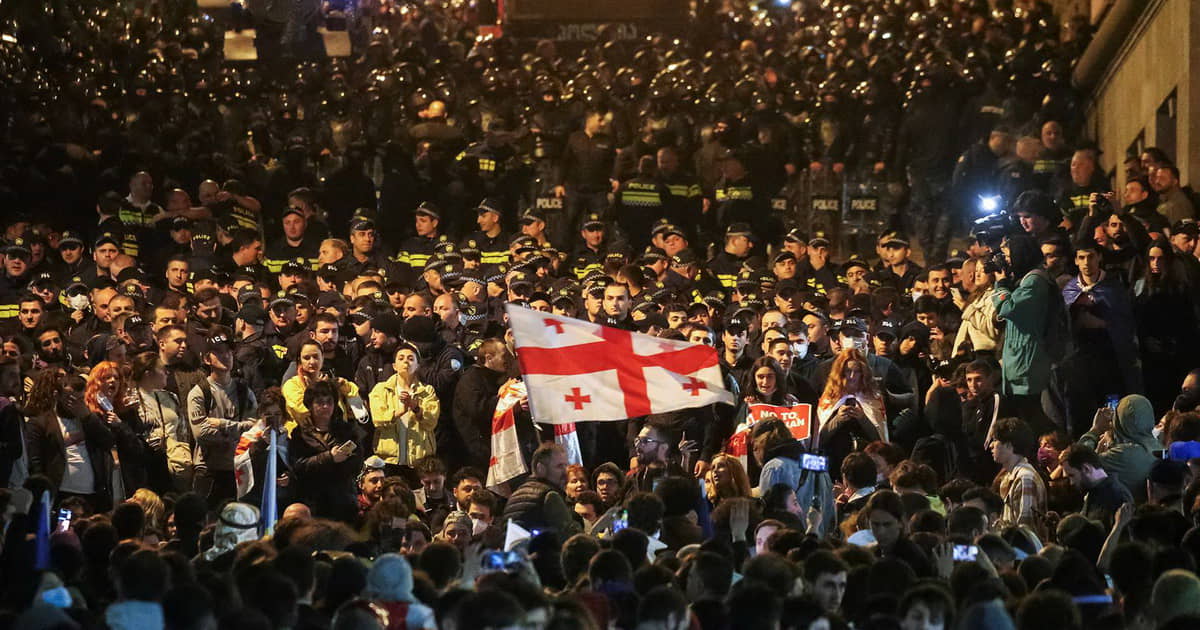Who and how can stop Georgia's pro-Russian turn

On 14 May, in its third and final reading, Georgia's Parliament passed the bill "On Transparency of Foreign Influence," which sparked widespread protests. This "foreign agents" law, copied from Russia, has decisively answered all questions about the country's foreign policy shift. The Georgian people could potentially stop the pro-Russian government, but the authorities have learned from previous protests and may avoid critical mistakes that could lead to a victory for the demonstrators.
Another condition for the protest success is strong Western support. Read more whether we can expect powerful Western sanctions against the Georgian authorities and the protesters's chances in the article by Yurii Panchenko and Sergiy Sydorenko, European Pravda's editors - Russia wins Georgia. How EU and US are losing influence in Tbilisi and whether it can be reversed.
Advertisement: The way the controversial decision was approved demonstrates the determination of the Georgian authorities. Earlier, the ruling party Georgian Dream announced that the third reading vote would take place on 17 May.
But at the last moment, plans were changed, and the law was approved on 14 May. A telling illustration of the authorities' haste was the meeting of the parliamentary committee on legal affairs, which preceded the parliamentary vote and took place at record speed. Most of MPs did not wait for any oppositional MP and approved the necessary decision without discussion within just a minute and a half.
However, they could not pass the law in the same speedy way in the session hall. MPs opened the parliament session on 14 May with a brawl. This delayed the decision only for a few hours and did not affect the authorities' willingness to pass the controversial law.
Despite street pressure and opposition chants of "Slaves!" and "No to the Russian law!", the bill was approved. The day ended with the dispersal of protesters who had gathered outside the parliament, involving the detention and beating of protest leaders by the police. The EU's reaction to the developments in Tbilisi only confirmed the crisis and division within the Union.
The fact that the written protest against Georgia's actions gathered signatures from less than half of the EU members is not encouraging. Even fairly mild proposals for a joint statement were blocked by Hungary and Slovakia. This makes reasonable punishment of Georgia by the EU nearly impossible.
What can the EU do in such circumstances? Undoubtedly, it will announce the potential suspension of membership talks. There may also freeze all or most financial programmes.
However, these steps will not likely to significantly impact the Georgian authorities. However, Hungary's veto cannot save Georgia from US sanctions. According to media reports, the United States has prepared a draft of sanctions against Georgian officials, including the top figure in Georgian power, Bidzina Ivanishvili.
The Georgian government, however, claims it is not afraid of potential sanctions. It is likely that the authorities hope to exploit the Western elites' inclination toward compromise and will make symbolic concessions. Georgian protesters have already announced that they will not agree to partial concessions.
But is their goal, especially regarding a change of government, achievable?
If you notice an error, select the required text and press Ctrl + Enter to report it to the editors.